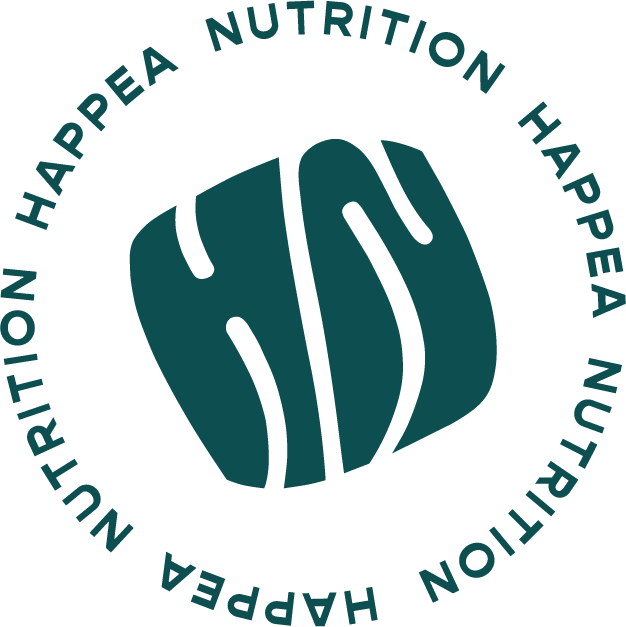Should you test your hormonal balance?
I recently started seeing the DUTCH test everywhere and I will admit that I was initially very drawn to it. I even started considering to offer it. But if you know me, you know that I always make sure the things I offer to my clients are evidence-based and truly beneficial. What I found out about these tests was shocking! I decided to share it with you to help you make informed decisions about your health.
Keep in mind, I respect any decision you make about your own health but I do feel an obligation to share the truth about tests commonly promoted by dietitians.
What is the Dutch Test?
The DUTCH test stands for “Dried Urine Test for Comprehensive Hormones.” It is designed to measure numerous hormone levels in the body in order to see which ones might need adjustments. It includes measures of cortisol, estradiol, progesterone, testosterone, and melatonin among others. To complete the test you need to complete 4-5 urine samples at scheduled intervals throughout the day. This method is supposed to give a more accurate picture of how hormones fluctuate throughout the day.
Why are hormones important?
Many factors can influence hormones and their regulation or production. Hormones can impact many areas such as reproductive health, sleep, stress, mood, and digestion, among others. There is also some evidence that behaviors, including eating a balanced and nutrient-dense diet, exercising, and managing stress can impact hormones. What we don't really understand yet is to what extent we can influence our hormones due to the interplay of so many factors.
Potential benefits of the DUTCH test
According to the company that sells this test (Precision Analytical Inc.), this test can be used to gain an understanding of your "hormonal balance". It is supposed to test for things like estrogen dominance, levels of the sleep hormone melatonin, or the stress hormone cortisol. Although the DUTCH test is one of the most comprehensive hormone panels, testing 47 markers, it is not clear how clinically significant this knowledge may really be, and even the company's website is slightly confusing when it comes to explaining the rationale. They refer to many studies, which they have all conducted themselves (if that's not a red flag, I don't know what is).
The many problems
As you can see the paragraph on benefits is short and sweet. Simply because I could not find any unbiased information on the benefits of this test. The only sources that you get when looking up the rationale behind DUTCH tests are articles by the same company that sells the test. According to endocrinologists, it is not current practice to check random hormones unless there is a strong clinical indication for testing. So, why is all of this problematic?
Made up diagnosis
Unfortunately, the DUTCH test is testing for diseases that do not exist. For example, adrenal fatigue is a made up diagnosis that is not acknowledged by endocrinologists (who are the experts on hormonal health). That's not because doctors want you to stay sick but simply because it is not a medical condition. The made-up “evidence” we find online about "adrenal fatigue" sounds very legitimate to someone who doesn’t have sufficient knowledge about the endocrine system and adrenal glands. The “diagnosis” for adrenal fatigue includes symptoms that are vague and something we all experience at some point in our life. Fatigue, stress, sleep issues, cravings, or brain fog are symptoms of stress… and life, honestly. It’s easy to diagnose people with something that is so general, it applies to every human being. Keep in mind that adrenal insufficiency is real and a serious problem that needs to be addressed.
Additionally, endocrinologists agree that a diagnosis of “hormone imbalance” is simply wrong. If any hormone is out of “balance”, it needs to be specified. Is it too low or too high? What are the clinical implications? Medical diagnoses need to be specific enough to make a plan to address the problem! Hormonal "balance" is questionable, since hormones are naturally in flux. A diagnosis of “imbalance” is vague enough to sound legitimate, but a sign that the provider has no idea what they are doing.
Lack of validation
The DUTCH test is yet (if at all) to be validated through randomized controlled trials, indicating more research is needed to determine whether there is true benefit to using it. The American Association for Clinical Endocrinology does not recommend this test and if anyone should know it is beneficial, it would be them. Unfortunately, there is absolutely no evidence that identifying abnormal cortisol levels can be useful for clinical practice or lifestyle interventions. It may indicate that more testing is needed (by an endocrinologist!) but that’s about it.
Functional medicine providers often try to convince you that traditional medicine doctors don’t do these tests because they don't mean well. This could not be further from the truth. However, traditional MDs will adhere to clinical guidelines as these guidelines are established based on rigorous clinical trials. These trials are completed to ensure patient safety and to ensure that for any intervention the benefits outweigh the risks. If you choose to engage in alternative testing and treatment methods, know that the trial is happening on you, in real time.
But it worked for me!
You may hear anecdotal evidence about how much these “diagnoses” helped people and wonder why I am so against it. Well, here is the problem: lifestyle medicine always works to make people feel better and any medical professional would agree. If you think about the advice that the DUTCH tests inform, it usually goes along the lines of: eat balanced meals throughout the day, don’t eat too late at night, avoid highly processed foods and emphasize whole, nutritious foods, get plenty of sleep, and manage stress. I don’t know about you but I don’t need an extra test to give this kind of advice to people.
Why is all of this problematic?
I think you should do all the tests you want if you are curious to understand how your hormones fluctuate throughout the day. Go for it. Just know it can't inform any treatment and if a provider tells you it does, they either didn't do their research or actually want to rip you off.
If you already spent money on a DUTCH test, I’m not blaming you for taking it! It sounds extremely legitimate and with increasing emphasis on holistic health, many of us are desperate for solutions. However, your symptoms may be due to a real issue that will be missed if you only rely on these functional providers. Additionally, over-testing hormones often leads to a misdiagnosis that could have more risks than benefits. If you feel let down by the traditional medical system, I completely understand you. However, many modern medical practices will spend more time with you, often for a small membership fee, which is much smaller than what you would pay for a DUTCH test and the “treatment”. Make sure you find a primary care provider that you feel good about before running into the hands of quacks.
How do you know if your hormones are healthy?
The good news is that there is very little benefit to actually tracking your hormones if you don’t have symptoms of endocrine dysfunction. This is why most endocrinologists do not recommend routine hormone screenings. There are a few cases when testing specific hormone levels is necessary, including symptoms of thyroid dysfunction, (actual) adrenal insufficiency, or if a woman stops getting her period. If a medical condition is suspected, legitimate testing by an endocrinologist could be very beneficial, but natural hormonal fluctuations are to be expected throughout life. If you want to ensure you are healthy, and all your systems are working, make sure you go to your annual physical. Find a primary care physician that makes you feel heard and seek a second opinion if you feel uncomfortable. The truth is that most healthcare practitioners want to get to the “root cause” of your symptoms and we all really care about your health.
Disclaimer: I am not a hormonal/endocrine health expert. If you want to talk about hormones, talk to an endocrinologist. I am sharing information, I found from reliable sources, about a functional test that is offered by many of my dietitian colleagues.
Sources:
Adrenal fatigue does not exist: a systematic review
Is the DUTCH test worth the money?
Is the DUTCH Test Useful for Measuring Cortisol Levels?
Ask a Doctor: When Should I Have My Hormones Checked?
Dietary factors and fluctuating levels of melatonin
Researched and written by Dana Herbsman specifically for Happea Nutrition. Edited by Paula Doebrich.
Share this



